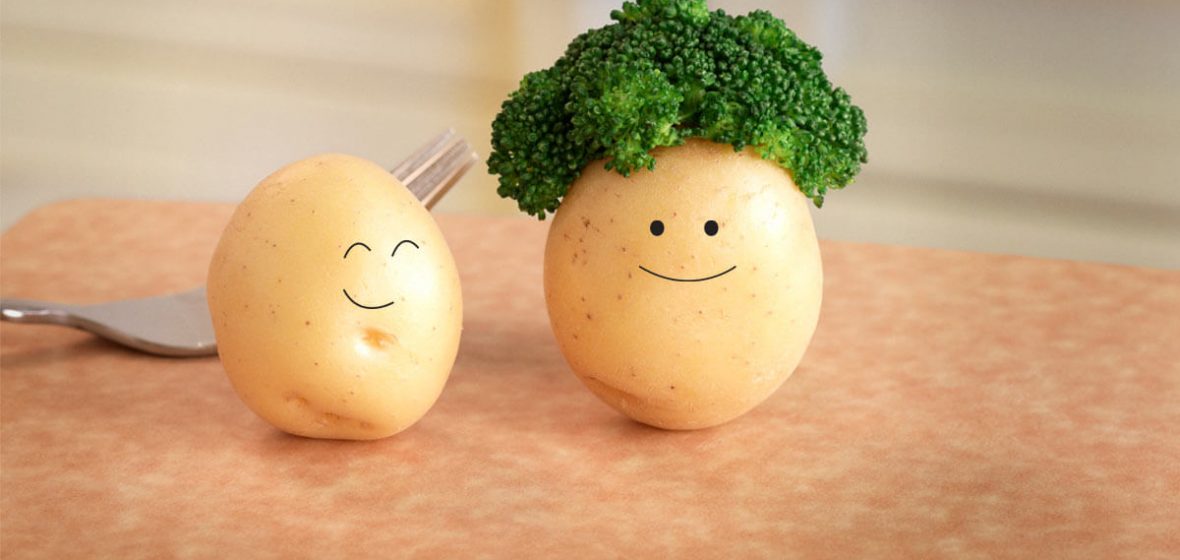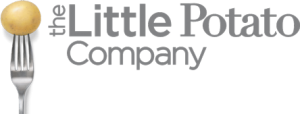Myth Busting: The Truth About Little Potatoes

You’ve heard it before, right? If you want to eat healthily, you’ve got to stay clear of ‘white’ foods. They’re overly processed, devoid of any nutrition, and will send your blood sugar levels soaring.
But let’s stop to think about that for a second. Does judging a food by its colour really make any sense? Can something that grows in the ground, like a Little Potato, be nutritionally the same as something that’s produced and refined in a factory?
It should come as no surprise that we are big believers in the humble superfood status of Little Potato creamers, so we’re here to dispel some of the myths that plague potatoes and showcase the nutritional and health benefits of adding a daily serving of Little Potatoes to your diet.
Myth #1: White Foods Are Bad for You
When we talk about ‘white’ foods, we are often referring to refined grains. These grains have been processed in a way that dramatically changes them from the way they were grown in nature. After these foods have been treated, heated, fractioned and fragmented you are left with a food that is nutritionally unbalanced, devoid of fibre, and full of chemicals and bleaches.1
Little Potatoes, on the other hand, are vegetables – yep, you heard that right, vegetables. And just like other vegetables, they are a whole food, unprocessed, nutrient dense and full of fibre.
Our Little Potatoes aren’t picked small (like some other ‘so-called’ little potatoes are) they are a special type of varietal – Creamer potatoes – that remain small at maturity. Because of the quality and care we put into our farming practices, Little Potatoes are nutrition powerhouses and a source of potassium, plant-based iron, vitamin B6, and manganese.
As we know people who eat more vegetables are healthier; we say eat up! Fill half your plate with veggies, including Little Potatoes.
Myth #2: Potatoes are a Bad Carb
This goes back to the ‘potatoes are a white food’ argument. When we refine grains (i.e. white flour or white rice), we remove the bran and germ layers which are valuable sources of fibre. With the fibre gone, the carbohydrates that are left can be quickly absorbed by the body, sending our blood sugar spiking the same way it would as if we ate a candy bar full of sugar.
Oh, and speaking of sugar, lots of refined, processed foods have that added in as well.
Little Potatoes, on the other hand, are a whole food. Never refined. No sugar added. This makes them what we call a complex carb. A type of carbohydrate that, thanks to its fibre content, is slowly broken down and absorbed by the body. The result? You get a steady stream energy (vs. one big spike) that keeps you feeling fuller longer with energy to burn.
Myth #3 Potatoes are Only Part of the Standard American Diet
The Standard American diet: the typical diet of North American’s centered around processed foods, high amounts of fat and sugar, and nary a vegetable in sight with the slight exception of iceberg lettuce and French fries.
Devoid of nutrition, eating this way is considered to be the reason why we see more and more people suffering from obesity, cardiovascular disease, and type 2 diabetes.
Because this way of eating is so ubiquitous on this continent, many health-conscious people view potatoes as part of the problem. Fried into French fry form, or covered in oil, cheese or sour cream, it’s easy to see why you might view potatoes as less than stellar in the health department.
But go back to what Little Potatoes are – a whole food, naturally gluten-free, high in fibre and rich in vitamins and minerals. Sure, you can dress them up to be more indulgent, but picture it like a piece of high-quality dark chocolate vs. a candy bar. They both start out as chocolate, but by the time you add all the sugar, flavors, nuts and nougat, you’re left with a very different product.
When it comes to health and diet, trying to pin poor health on one food doesn’t add up. You need to think about the diet holistically and look to the overall quality and quantity of the foods consumed. This was made apparent when researchers looked at the association of dietary patterns to diseases like cancer and cardiovascular disease amongst Japanese adults. After studying the diets of adults ages 45-74 for three years, they found that a prudent diet characterized by a high intake of vegetables, fruit, soy, seaweed, fish and (you guessed it!) potatoes were significantly associated with decreased risk of all-cause and cardiovascular disease mortality.2
Bottom line? A good diet contains a variety of whole foods and lots of veggies. Ditching the myths surrounding potatoes and looking at Little Potatoes for what they are (whole food veggies!), you can see they are a perfect fit for a healthy diet – nutritionist-approved!
If you have more question on potato nutrition or would like to get more cooking tips and healthy recipes, sign up for our monthly newsletter. And join the social media conversation! If you have questions, comments or quips, don’t hesitate to get in touch by email to info@littlepotatoes.com.
References
- http://www.foodmatters.com/article/why-refined-grains-are-harmful
- https://www.ncbi.nlm.nih.gov/pmc/articles/PMC5405917/pdf/pone.0174848.pdf

Longevity Educator, Registered Holistic Nutritionist (RHN), Real Food Advocate and Endurance Athlete.
Emma Andrews is a Nutritionist (RHN) and Educator from Vancouver, Canada, and passionate about sport performance and longevity. Through her 10+ year career in the natural products industry, Emma has developed a deep understanding of ingredients, and nutritional…
Did you like what you read?
